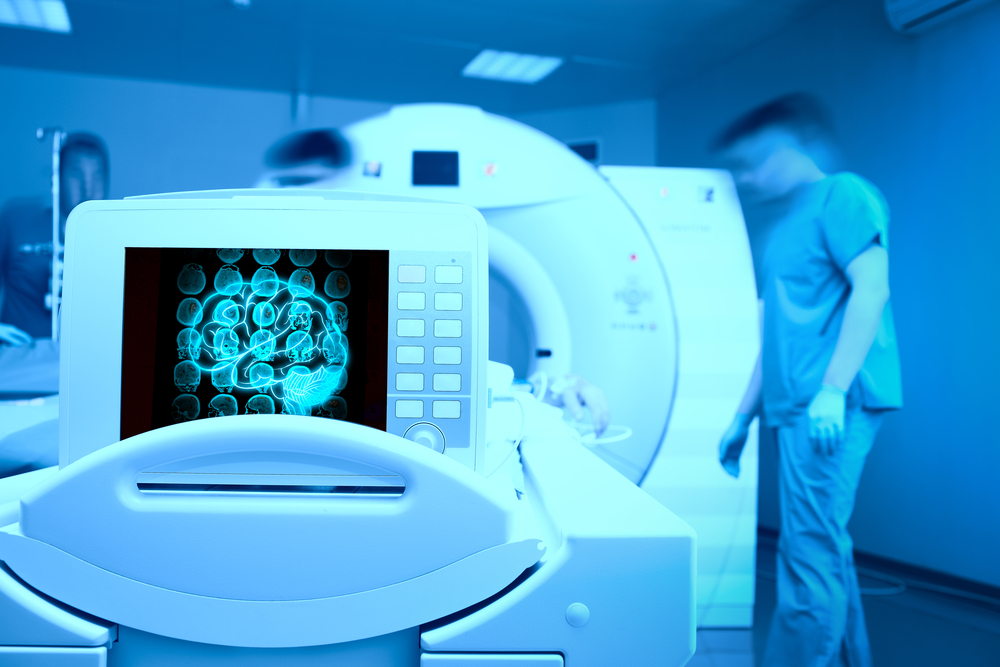What are Magnetic Resonance Imaging (MRI) scans?:
MRI scans use strong magnetic fields and radio to produce detailed images of your body’s internal organs and structures.
When are MRI scans used?:
MRI scans are especially useful for examining the brain and spinal cord. This can help physicians check for:
- Aneurysms
- Stroke
- Tumors
- Injuries to the spinal cord
- Eye and inner-ear disorders
- Multiple sclerosis
- Pre-assessment of the brain areas that control language and movement, prior to brain surgery
MRI scans are also sometimes taken of the heart and blood vessels to see:
- How large a heart is, and how it’s functioning
- The thickness and motion of the heart’s walls
- Any damage to the heart caused by heart disease or a heart attack
- Abnormalities in the aorta
- Whether blood vessels are swollen or blocked
MRI scans are useful for checking for problems within other internal organs, such as the:
- Liver
- Spleen
- Pancreas
- Kidneys
- Ovaries
- Uterus
- Prostate
- Testicles
When MRI scans are taken of a patient’s bones or joints, they can help doctors diagnose:
- Joint abnormalities caused by trauma or a joint disorder such as arthritis
- Spinal disc problems
- Bone infections
- Bone and soft-tissue tumors
MRIs of the breasts can:
- Help detect breast cancer, especially if a woman is at elevated risk of the disease, or has dense breasts that may not be easily examined by other types of tests.
Possible complications of MRI scans:
If you’re having an MRI, any metal within your body could affect the results, or possibly pose a safety risk. Inform the technologist if you have:
- A pacemaker
- An internal heart defibrillator
- Artificial heart valves
- Cochlear implants
- Clips made from metal
- Artificial joints
- Metal fragments such as a bullet or shrapnel
Also inform your doctor if you think you may be pregnant, since the risks of MRIs to fetuses are not yet fully understood. Your physician may opt for another type of test.
Lastly, discuss any kidney or liver problems with your doctor and the MRI technologist before the test. In some cases, they may be unable to use contrast agents–substances injected into your body before the test in order to better highlight the area being examined.











